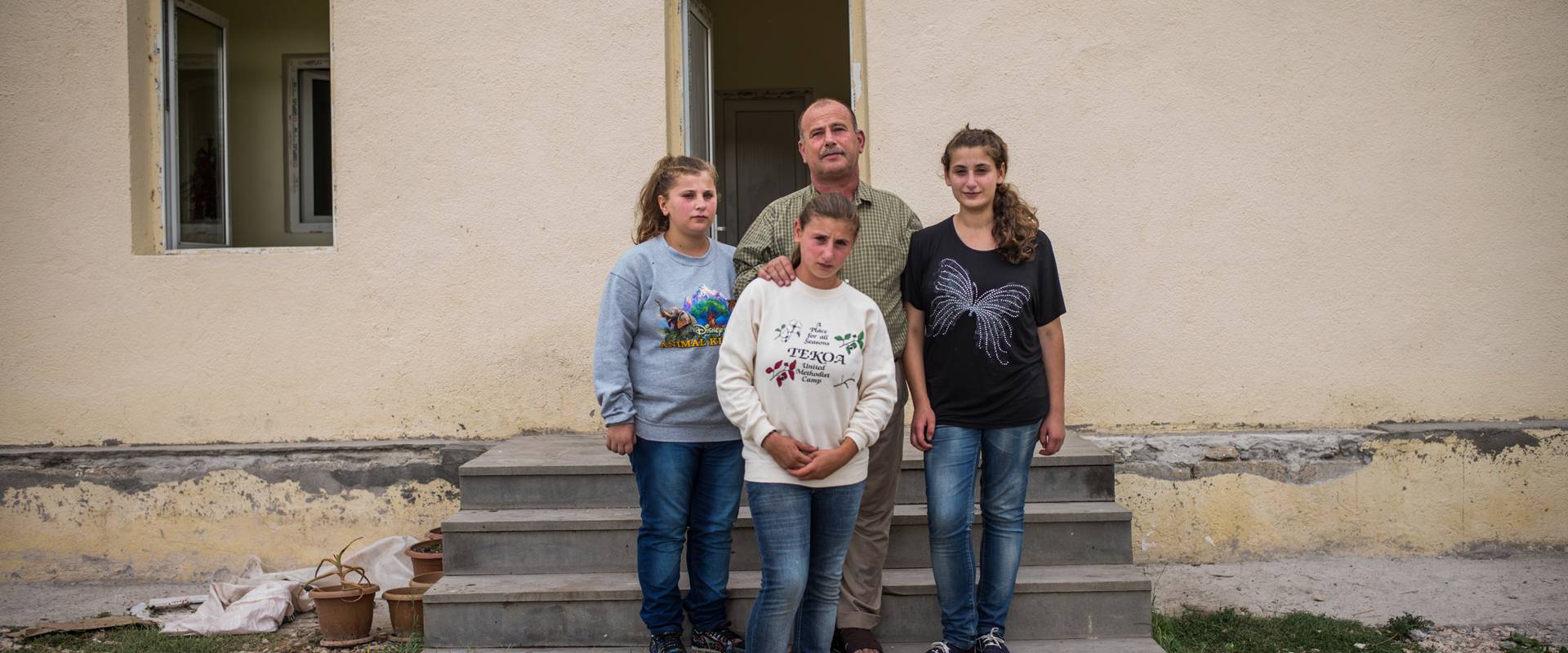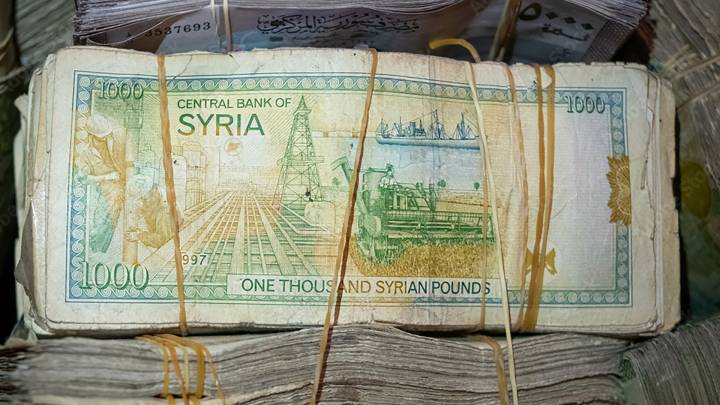More and more Syrians are settling in Nagorno-Karabakh, supported by Armenian communities, opening a new dimension in the ongoing conflict with Azerbaijan. Syrians may be pawns in this conflict, even as they attempt to begin new lives.
“Were you afraid?” Hayk Khatchataryan waves dismissively in response. He remained calm and silently prayed when four armed Daesh fighters burst into his medical practice and forced him into a car. He is sure that the Lord heard him, because the gunmen wanted to forcibly convert him to Islam, on pain of death. But Khatchataryan refused, and the men let him go unharmed. “It’s a miracle,” he smiles.
The longer the conflict continues, the less likely a solution becomes.Soon after this event, he made a hard decision. Khatchataryan and his three daughters packed and left behind Syria, his medical practice, his two flats and a good life, leaving for Nagorno-Karabakh. His family is part of the small Syrian-Armenian community, Christian Armenians that settled in Syria generations ago. As he sits in his new home and remembered the past, his eldest daughter Anna is outside, cutting a watermelon and brewing coffee on a little gas cooker. All the little everyday conveniences he took for granted in Syria, like a proper stove, have become things of the past.
Arabic schoolbooks are piled up in the corner of the room. They are the last memories of his former home. “I have forgotten about Syria,” Khatchataryan says with certainty. But then he corrects himself. “We have forgotten about Syria.” All that matters is their new home in Nagorno-Karabakh. With his daughters he only speaks Armenian. His oldest daughter Anna nods in agreement. “Nagorno-Karabakh has become our home country.”
Today, this troubled region is in need of new inhabitants, as successive waves of local young men have died over decades of fighting.Nagorno-Karabakh is a self-proclaimed republic, formerly part of Azerbaijan. Ever since Armenians in Nagorno-Karabakh approved the creation of an independent state following a Soviet-backed referendum in 1991, there has been perpetual and at times bloody conflict between ethnic Armenians and ethnic Azerbaijanis. But today, this troubled region is in need of new inhabitants, as successive waves of local young men have died over decades of fighting. For the Syrian family, Nagorno-Karabakh is not only their new home but also their new identity. “Take a look,” says Khatchataryan. Outside, we can see children playing and women baking bread. “See how beautiful it is here.”
Khatchataryan and his daughters are part of a group of 20 families from Syria and Lebanon, Syrian-Armenians whohave moved to the tiny village of Ishkhandazor, hidden in a green valley, where the government is assigning land, interest-free loans, houses and building materials to all families. From the small, perforated street, one can see the glittering corrugated tin roofs of all the new houses.
Yet the peaceful setting belies a dark undercurrent of barely-settled tensions. According to an OSCE observer, firing over the designated borders often breaks out. “In principle, this is the permanent situation nowadays,” the observer said. For four days in April, the conflict escalated into a vicious but brief war. Many of the Karabakh residents registered to serve on the front, including Khatchataryan.
The conflict is omnipresent, even here. Broken tombstones between crumbling ruins and bushes are a reminder of the Azeris who fled fighting in their villages in the 1990s.
Azerbaijan still claims the region, which is occupied by Armenian troops – or won back by Armenian troops, as Armenians in Nagorno-Karabakh put it. Negotiations seeking to end the long-running dispute, led by the Minsk Group under the watchful eyes of Russia, the US and France, have stalled since the 1990s. Nagorno-Karabakh is represented by Armenia, which rejects Karabakh independence (as all other countries do), but still provides financial and military support. Armenian soldiers do their military service at the disputed region’s front line, while Nagorno-Karabakh military officers are trained in Armenia.
There seems to be no end in sight to this conflict. Getting all parties together around a table seems close to impossible. The solution might still be decades away, as Alexander Iskandaryan from the independent Caucasus Institute in Yerevan guesses. “At least a few decades.”
The plan for peace is actually well-known. Azerbaijan has to pledge to end the fighting. and in return Nagorno-Karabakh has to give seven regions back to Azerbaijan. These are the regions where Syrian refugees are being settled. “The Karabakh government tries to lure people to move exactly there, in order to populate the regions,” Iskandaryan says, a brawny man with a white beard who is wearing a golden amulet. He shrugs his shoulders. The fleeing Azeris left behind rural areas in the early 1990s. “Now people are living there,” he says. “They have found a home.” The implicit meaning here is that the longer the conflict continues, the less likely a solution becomes.
In Stepanakert, the tiny capital city of Karabakh, 28-year-old government spokesperson Artak Beglaryan denies Iskandaryan’s theory. Nagorno-Karabakh has not begun a concerted programme of resettling people to populate these regions, he says. Possibly there are around a hundred Syrians, all of whom moved there by choice.
Of course, an influx of newcomers creates a new reality, Beglaryan says. While we speak, his phone rings non-stop. “The more people live in that region, the more likely we are to own that land.” He smiles. “The region belongs to Nagorno-Karabakh anyway.”
But in Azerbaijan, they see it differently. Agshin Mehdyey, Azerbaijan’s envoy to the UN, warns that the Armenian settlement of Syrians in Karabakh could provoke “unforeseen consequences”.
Perhaps that is why the Ministry for the Diaspora in Yerevan plays down the issue, declaring that it is unaware of any Syrians in Nagorno-Karabakh. They see it, rather, as an Armenian effort to try to integrate Christians from Syria. Asked for more specific information, they back away and claim Armenia is solely responsible for Nagorno-Karabakh.
What about Khatchataryan? Soon he and his daughters will move to a house belonging to an Azerbaijani family that had to leave for the same reason Khatchataryan and his family had to flee their home. The doctor, who has been saved by fate, just nods and asserts, “It is our country now.” A country he would defend to the death. He does not care that his new home was the home of Azeris before.









